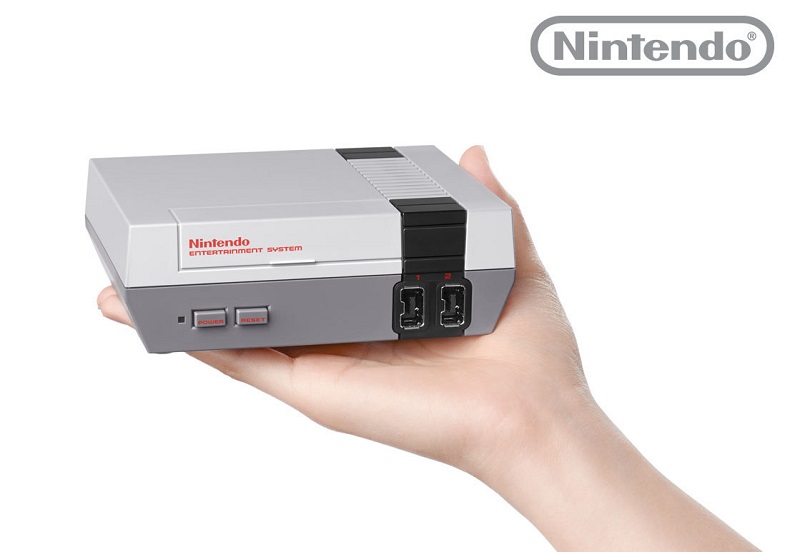What happens to Nintendo? We had been months without much to tell the Japanese video game giant and spent two weeks in which between the social phenomenon created by Pokémon Go and newly introduced Nintendo Mini Classic: Nintendo Entertainment System not stop talking about them.
That we love, of course, especially since it seems that the company has known how to choose the right time to combine the launch of a product that looks to the future with another, this retro console that looks to the past. The only problem? If you want to enjoy the old NES games you can do so easily and cheaply through an old acquaintance: The Raspberry Pi.

Nintendo Mini Classic: Economical but limited
Our fellow Kotaku explaining how the Nintendo Classic Mini brings us back to the past with a very compact version of that console 80s that sold over 100 million units worldwide and that made Nintendo in the giant it is today day. The console will feature HDMI output, something that “fits the modern world” and that can easily enjoy these games at any time.
This “mini NES” also includes a controller Nintendo Mini Classic which is identical in format to the old Nintendo consoles and also has a set of 30 classic games preinstalled we can enjoy from the first moment. Including many of the legends of the console, such as ‘Bubble Bobble’, ‘Castlevania’, ‘Donkey Kong’, ‘Super Mario Bros.’, ‘The Legend of Zelda’ or ‘Ghost’n Goblins’, for example.
Nothing is known about the internal hardware of the console, but one of the most reasonable theories is that Nintendo is using an ARM microprocessor on which an emulator runs. Already they have a NES emulator (The 3DS Virtual Console), and the price of these chips is consistent with the final price of the console.
This console will cost $ 60 in the US We’ll be able to buy an additional command for 9.99 dollars and will be available next November 11, 2016, which will surely become a bestseller small for that Christmas season for Nintendo he has prepared us.
The Raspberry Pi again shows his versatility
However all it offers us developed by Nintendo can be achieved with the Raspberry Pi : emulation of this console and many other platforms is one of the achievements that these small miniPC have offered for years, and the growing power of Raspberry Pi 2 and especially the Raspberry Pi 3 has opened the doors to a more faithful emulation – emulator rather an old platform is nothing sencillo – even more recent and powerful platforms.
In the field of emulation the Raspberry Pi has several ocpiones, but one of the more established projects is EmulationStation, besides being Open Source leads become time perfect frontend hindfoot project , in which there are emulators for 30 different platforms.
Among these platforms, of course, is the NES, where we can enjoy all those games and of course many more through this animated segment emulation having websites like Emuparadise concerning where to find everything and for all.
You may also like to read another article on iMindSoft: Kodi wants you to see the movies in the lounge with Raspberry Pi and created it a perfect package
An even more faithful emulation
Not only that: if we use the Raspberry Pi just for this purpose we can go to something much more professional and managed. There bartops based Raspberry Pi that are more oriented to emulate recreational thanks to MAME, but if we want to enjoy a more focused experience to the NES also can do it.
There are cases such as the Pitendo we can buy for $ 40-for $ 140 it comes with an RPI in March armed to the teeth and ready to enjoy – or much more friendly projects like housing NesPi built with LEGO blocks.
What about those original controls the NES? There is solution for it, of course. We have controls as NES30 sold and let you enjoy the experience and do well thanks to wirelessly via Bluetooth operation.
The combined cost of the Raspberry Pi, accessories, housing and command course exceeds the Nintendo Classic Mini, but remember that the Raspberry Pi will offer additional interesting options for all who want to exploit that potential. If you only want to play an emulator of the NES (and with 30 games offered by them) the official Nintendo product is a great alternative, but the Raspberry Pi can be a much more versatile option for both play other emulators like to use for all kinds of alternative projects.
In fact both the housing and the control NES style are optional: if you have a command of a traditional console will be able to use it in Emulation Station not only for the NES, but for the rest of emulators, something that certainly makes a difference to exploit this small ingenuity for this specific task. what do you think is the best option? You choose.